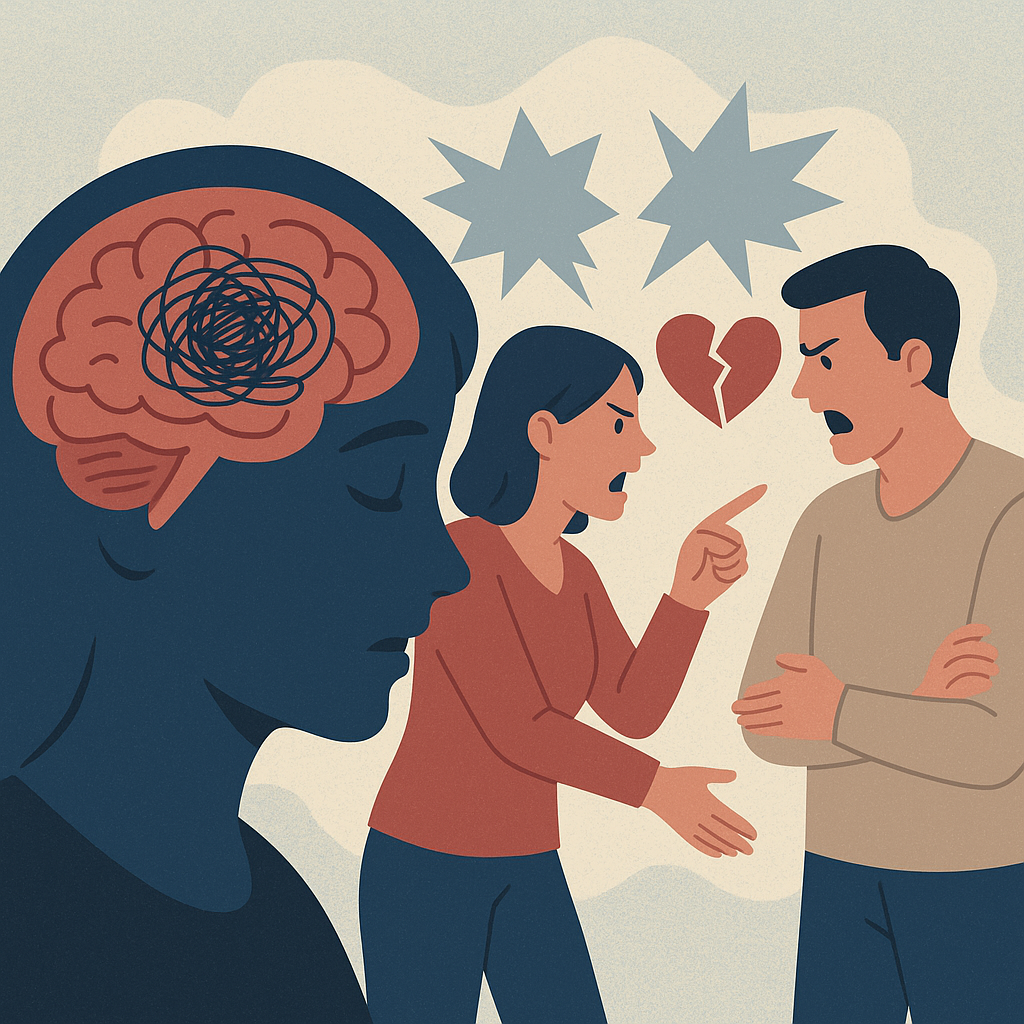The Interconnection Between Mental Health and Matrimonial Disputes
Learn how unresolved mental health issues can fuel relationship conflict — and how emotional wellness and legal stability go hand in hand

Relationships are the cornerstone of our emotional lives—but when they begin to unravel, the effects ripple far beyond the walls of a home. For many couples, disputes over marriage, custody, or separation aren’t just legal battles; they are deeply emotional experiences that can erode psychological health. Likewise, unresolved mental health struggles often sit at the root of marital breakdowns, creating a cycle where one problem worsens the other.
Understanding this two-way relationship is crucial. By recognizing how mental health and matrimonial disputes feed into each other, couples, families, and professionals can take steps to break the cycle and find healthier outcomes.
The Bidirectional Connection
Mental health issues and matrimonial disputes are deeply and complexly intertwined in a bidirectional relationship. This means mental health problems can contribute to marital conflict, and conversely, the stress and turmoil of marital disputes can cause or worsen mental health conditions.
A multinational study led by Breslau et al. (2011) involving over 46,000 individuals across 19 countries found that 14 of 18 premarital mental disorders were associated with a lower likelihood of marriage, while all 18 were associated with increased risk of divorce. Notably, major depression and alcohol abuse were among the disorders most strongly tied to marital disruption.
How Mental Health Issues Can Lead to Marital Disputes
- Impaired communication: Depression or anxiety can make it difficult to express needs and emotions effectively. This leads to misunderstandings, emotional distance, and resentment.
- Personality and behavioral changes: Disorders like borderline personality or schizophrenia can cause instability that places intense pressure on a partner. Sarma (2005) found that psychiatric patients often face higher marital strain, and many marriages involving mental illness eventually result in separation or desertion.
- Increased caregiving burden: When one spouse faces mental illness, the other may shoulder additional responsibilities. This added stress can lead to burnout and detachment.
- Intimacy and connection issues: Depression can lower libido and reduce shared activities, weakening bonds.
- Substance abuse: The U.S. Department of Health and Human Services notes that marriage is protective against substance abuse, but when strain grows, substance use often escalates as a coping mechanism.
How Marital Disputes Can Damage Mental Health
- Anxiety and depression: Prolonged conflict creates emotional strain. Lamb & Lee (2002) showed that marriage initially reduces depressive symptoms, but once quality declines, the benefit reverses.
- PTSD: Betrayal, infidelity, or emotional abuse can trigger trauma responses.
- Lowered self-esteem: Constant criticism or invalidation fuels feelings of worthlessness.
- Physical health issues: Wood et al. (2007) linked long-term marital stress to weakened immunity and higher risk of cardiovascular disease.
- Social isolation: Conflict often causes withdrawal from family and friends, eroding support systems.
The Cycle of Decline
- One partner’s mental health struggles manifest in withdrawn behavior.
- The other misinterprets this as disinterest → communication breaks down.
- Conflict worsens → both partners’ mental health declines.
- Without help, the cycle escalates to separation or divorce.
Breaking the Cycle: Pathways to Healing
- Therapy: Individual or couples therapy addresses both inner distress and relationship conflict.
- Legal guidance: Informed legal advice can de-escalate disputes without rushing into litigation.
- Social support: Community and group therapy rebuild lost social connections.
- Healthy coping: Meditation, journaling, and structured conflict management strengthen resilience.
“Addressing mental health concerns during matrimonial proceedings isn't just about individual wellness—it's about creating conditions for healthier communication and more constructive conflict resolution.”
The Peace2Hearts Approach
At Peace2Hearts, we bridge the gap between law and psychology:
- Licensed therapists skilled in trauma and relationship recovery.
- Legal experts focused on clarity and conflict de-escalation, not litigation.
- Research-backed guides, articles, and checklists to empower families.
If you’re struggling, reaching out for support is a strong first step. Let us help you find clarity and peace — whether in your relationship, or in moving forward beyond it.